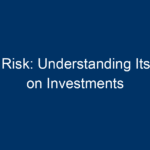Introduction
"Downton Abbey" has captivated audiences around the world since its debut in 2010. This British historical drama, created by Julian Fellowes, offers a rich tapestry of intrigue, romance, and societal change, all set against the backdrop of a declining aristocratic family in the early 20th century. But beyond the opulent settings and sumptuous costumes, the heart of "Downton Abbey" lies in its complex characters. In this article, we will explore how character development plays a pivotal role in the series, examining the transformation of key figures and the impact of these changes on the overarching narrative.
The Evolution of Robert Crawley: The Earl of Grantham
Robert Crawley, the Earl of Grantham, is introduced as a traditionalist, struggling to adapt to the changing societal landscape. His character development throughout the series mirrors the decline of the British aristocracy. Initially depicted as a well-meaning but somewhat oblivious patriarch, Robert embodies the tensions between old-world values and modern realities.
Key Moments of Growth
-
Emotional Turmoil: Robert faces numerous personal crises, including the loss of loved ones and the threat to his family’s estate. Each of these events nudges him toward recognizing the need for change.
-
Relationship Dynamics: His relationship with Cora, his American wife, evolves significantly. Through their struggles, Robert learns the importance of partnership and compromise.
- Confronting Class Issues: As the series progresses, Robert becomes more attuned to the struggles of his servants, understanding that the class divide is less rigid than he initially believed.
Lady Cora Crawley: The American Influence
Cora Crawley, played by Elizabeth McGovern, is a quintessential representation of the 1920s shift from aristocracy to a more egalitarian society. Cora’s character examines the fusion of American values with English traditions, often acting as a bridge between her husband and their staff.
Development Highlights
-
Strength Amidst Adversity: Cora’s resilience in the face of her husband’s decisions and external conflicts showcases her strength, making her a pivotal character in advocating for her family and staff.
-
Champion of Social Change: Her acceptance and support of her daughters’ desires for independence signal a shift toward modern womanhood in the series.
- Complex Motherhood: Cora’s relationships with her children reveal her evolution as both a nurturing mother and a firm supporter of their choices, particularly when they challenge societal norms.
The Rise of Lady Mary Crawley
Lady Mary Crawley, one of the central figures in "Downton Abbey," undergoes one of the most significant transformations throughout the series. Initially presented as a spoiled, self-centered aristocrat, Mary’s character development reflects broader themes of empowerment and resilience amid personal tragedy.
Key Aspects of Her Transformation
-
From Cynicism to Responsibility: Mary starts off as a character burdened by cynicism, often making harsh judgments about others. However, as the series progresses, she learns to take responsibility for her actions and choices, especially after the events surrounding Matthew’s death.
-
Professional Evolution: Mary’s journey into managing the estate shows her growth from a passive aristocrat to a proactive, competent businesswoman. This not only empowers her character but also highlights the changing role of women in society.
- Love and Loss: Mary’s relationships, particularly with Matthew Crawley and later Henry Talbot, reflect her evolving understanding of love and partnership. Each of her romantic entanglements aids in her character growth, teaching her valuable lessons about trust, loyalty, and vulnerability.
The Transformation of Thomas Barrow: The Butler’s Struggle
Thomas Barrow, the scheming footman turned butler, presents a compelling narrative arc of ambition, desperation, and redemption. His character offers insight into the struggles faced by LGBTQ+ individuals in the early 20th century.
Layers of Complexity
-
Desire for Acceptance: Thomas’s scheming nature is rooted in his desire for acceptance and recognition. His actions often stem from insecurity, making his character both a villain and a victim of circumstance.
-
Friendships and Loyalty: Throughout the series, Thomas experiences a switch from being manipulative to seeking genuine connections, notably through his friendships with fellow staff members like Daisy and Burtie.
- Redemption Arc: By the end of "Downton Abbey," Thomas experiences growth, showing empathy and kindness. His journey illustrates that even those who stray can find a path to redemption through honest relationships.
Supporting Characters: The Unsung Heroes
Beyond the primary characters, "Downton Abbey" is home to a rich cast of supporting characters, each contributing to the overarching story through their own character arcs.
Significant Contributions
-
Mrs. Hughes: As the housekeeper, Mrs. Hughes embodies the epitome of strong leadership and compassion, navigating the complexities of running a household while caring for the staff.
-
Bates and Anna: This couple’s relationship serves as a testament to loyalty and trust. Their struggles and triumphs resonate deeply, demonstrating the significance of love amidst adversity.
- Daisy Mason: Daisy’s evolution from a naive kitchen maid to a confident woman pursuing her education and professional growth reflects the changing aspirations of women during the time period.
Conclusion: The Impact of Character Development in "Downton Abbey"
The character development in "Downton Abbey" is not just a storytelling mechanism; it is the very heart of the series. Each character’s journey contributes to a broader commentary on social change, gender roles, and class dynamics, resonating deeply with viewers.
As you explore the intricate storylines of "Downton Abbey," consider how these character transformations influence your understanding of societal issues. Allow their journeys to inspire your reflections on change, resilience, and the importance of connections.
Actionable Insights
- Reflect on Your Growth: Just as the characters of "Downton Abbey" evolve, take time to assess your own journey. What experiences have shaped you?
- Embrace Change: Change can be difficult but also necessary. Let the characters’ resilience encourage you to embrace the changes in your own life.
- Value Relationships: Focus on building genuine connections, much like the characters in "Downton Abbey," who find strength in unity amidst turmoil.
In conclusion, "Downton Abbey" offers not only a captivating story but also profound lessons in character development and the human experience. Immerse yourself in this timeless narrative and allow it to inspire your understanding of personal and societal evolution.




